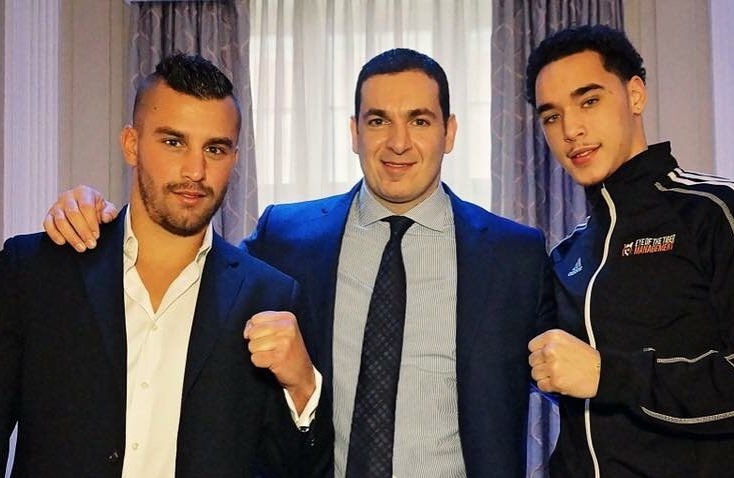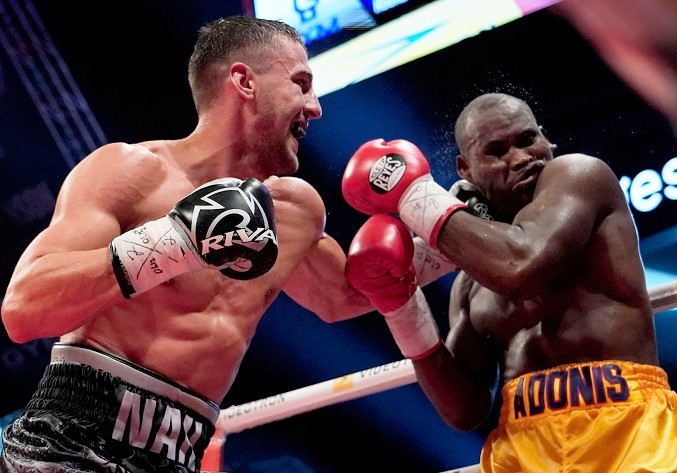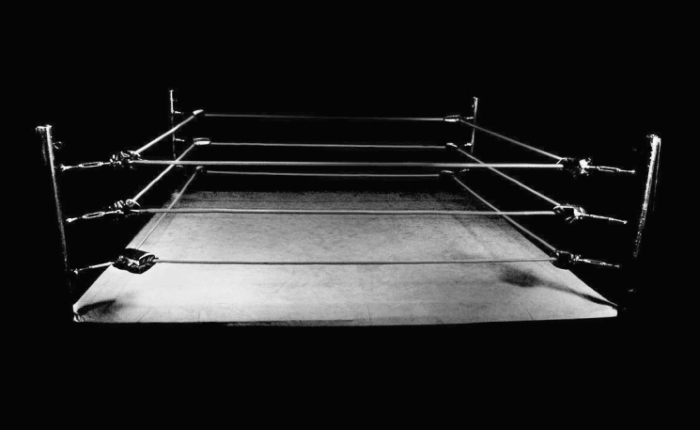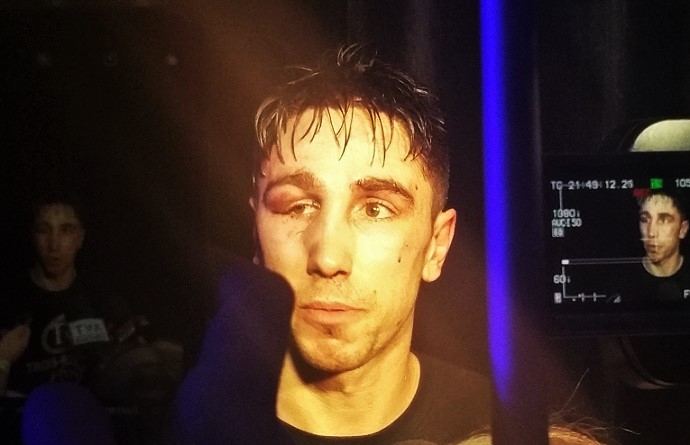Quarantine Blues: Boxing Fights For Survival
Last week the government of Quebec announced it was considering prohibiting the resumption of boxing events until an effective vaccine for COVID-19 is found. The province’s two biggest promoters, Camille Estephan and Yvon Michel, have responded with vocal disdain, arguing that without the ability to stage live fights their businesses will be ruined.
“It’s unacceptable and dictatorial. It looks like Julius Caesar in Rome,” Estephan subtly analogized. But while the anger of the promoters is legitimate, in fact this is only the most recent impediment for an industry that has been in decline for some time.

The decision to suspend boxing for the foreseeable future is a devastating one for the sport but, at this point at least, the government’s mind appears to be made up. In its email response to the Montreal Gazette, a spokesperson from Health and Social Services of Quebec wrote: “as the virus is spread mainly by droplets and in enclosed areas, boxing fights increase the risk of spread … Sweat, blood and saliva are very present during a fight and even exceed two metres when blows are struck between opponents. The risks are therefore greater [than for outdoor sports where] secretions and droplets don’t stay suspended in the air …”
While airborne spread is hypothetically possible, this is a flimsy justification to ban boxing events as each fighter would naturally be tested prior to a bout, as currently done in pandemic-era boxing and UFC cards. As Estephan told the Gazette, since there are only two athletes and a referee inside the ring, germs are far easier to control in boxing than in hockey or baseball games, both of which are set to resume in the near future. Why, then, would the government make such a decision?

Michel states he believes officials want to destroy boxing. “I can’t believe we’re treated [this] way. It’s a big lack of respect for what we’ve accomplished … what we’ve invested. We’re not some fly-by-night (business).”
As the promoters acknowledge, while their boxers can go elsewhere in search of bouts, that would not be an optimal solution. International audiences will clamor only for the best of either promoter’s stable, leaving their younger, developing fighters, whose fan bases are mostly local — and upon whom Estephan and Michel will depend in the future — with few options.
While Quebec’s boxing scene is now clearly at a low ebb, in fact it’s been sluggish for years. The province hasn’t hosted an internationally meaningful event since Adonis Stevenson’s life was imperiled in his knockout loss to Oleksandr Gvozdyk in December 2018, or when, one year earlier in Laval, England’s BJ Saunders humbled David Lemieux. Beyond Stevenson and Lemieux, the province’s other reliable recent draw, Jean Pascal, had a successful run in the 2010s, twice fighting both Bernard Hopkins and Sergey Kovalev before large crowds in Montreal and Quebec City, and once packing the Bell Centre during his 2014 win over cross-town star Lucian Bute. But his most recent major fights — against Dmitry Bivol, Marcus Browne and Badou Jack — all took place south of the border.

Simply put, with the exception of occasional Eye Of The Tiger events, including a major card this past December at the Bell Centre, there’s been little to get truly excited about for some time, especially when one considers the talent and resources otherwise available in La Belle Province. Equally troubling is the fact that while Pascal and Lemieux move closer to retirement, it’s unclear who might supplant them as major draws in Quebec. Local fighters such as Steven Butler, once talked about as the province’s next star, have struggled on the world level, while international boxers like Artur Beterbiev, the most dominant of any Quebec-based fighter today, are yet to forge the same connection with fans that was achieved by the Romanian Bute.
This may be because, unlike Bute, boxers like Beterbiev, and now heavyweight Arslanbek Mahkmudov, haven’t demonstrated the same proficiency in French, or chosen to walk to the ring draped in a fleurs-de-lis. If the province’s boxing fans require such wholehearted cultural immersion, this demands a degree of effort and willingness which boxers from other countries may not be able to meet.

But there are other, more practical reasons for the scene’s stagnancy that go beyond culture. Most obviously, several of the province’s best fighters have not ascended to heights that once seemed possible. Whether because of inactivity (Custio Clayton), promotional issues (Erik Bazinyan and Batyr Jukembayev), poor performances in important bouts (Yves Ulysse last December), or a combination of the three, some of the fighters we thought capable of ushering in a golden age are still on the periphery of boxing’s inner sanctum.
With the passage of time, new players have emerged. Today Camille Estephan has Quebec City’s Lexson Mathieu and Kazakhstan’s Sadriddin Akhmedov under contract, both of whom possess excellent potential. The promoter also oversees Mahkmudov, a ferocious and marketable heavyweight with proven knockout power. And while Eye of the Tiger was right to take advantage of heavyweight Simon Kean’s regional popularity and build cards around him across Quebec, it is Mahkmudov and boxers of his caliber who, if managed properly, will bring internationally relevant fights to the province.

Of course, there is a vast gulf between what should happen and what often does. But regardless of whether Quebec relents on its corona virus restrictions, Estephan and Michel should realize that things must happen faster for their fighters. But how can they make that happen? What do they need to do differently?
Nothing new or novel, really. Drawing on their own fan base and creating local rivalries between the best young talents would be a positive start. Keeping fighters active against meaningful competition before pushing the most capable into title fights is a good idea too. These are obvious smart choices, promotional truisms, yes, but largely absent in Quebec. Put another way, if promoters make such historically-proven moves, success will follow. If they do not, then neither Estephan or Michel can justifiably accuse the government, or COVID-19, of killing a sport already gasping for breath.
— Eliott McCormick





